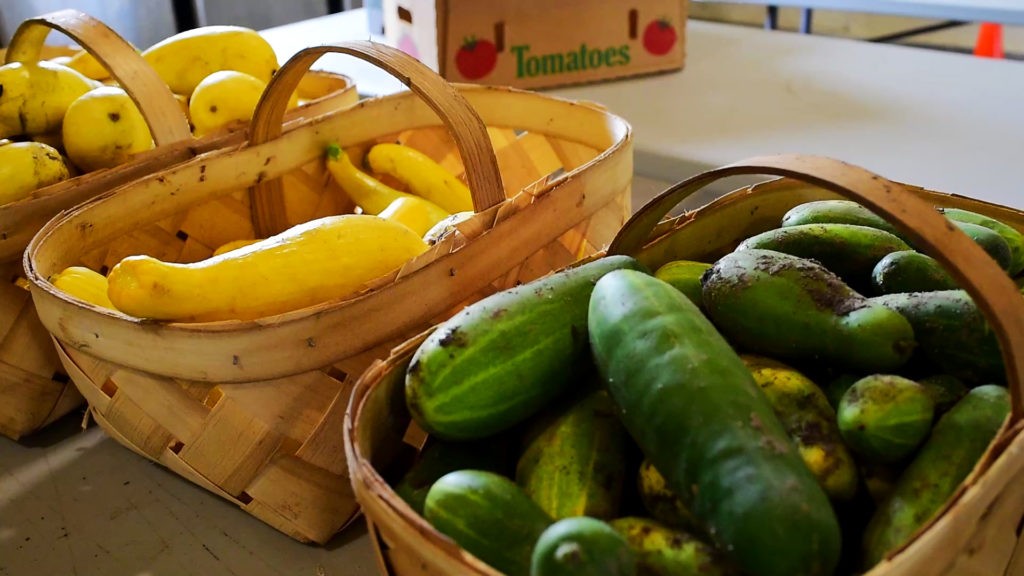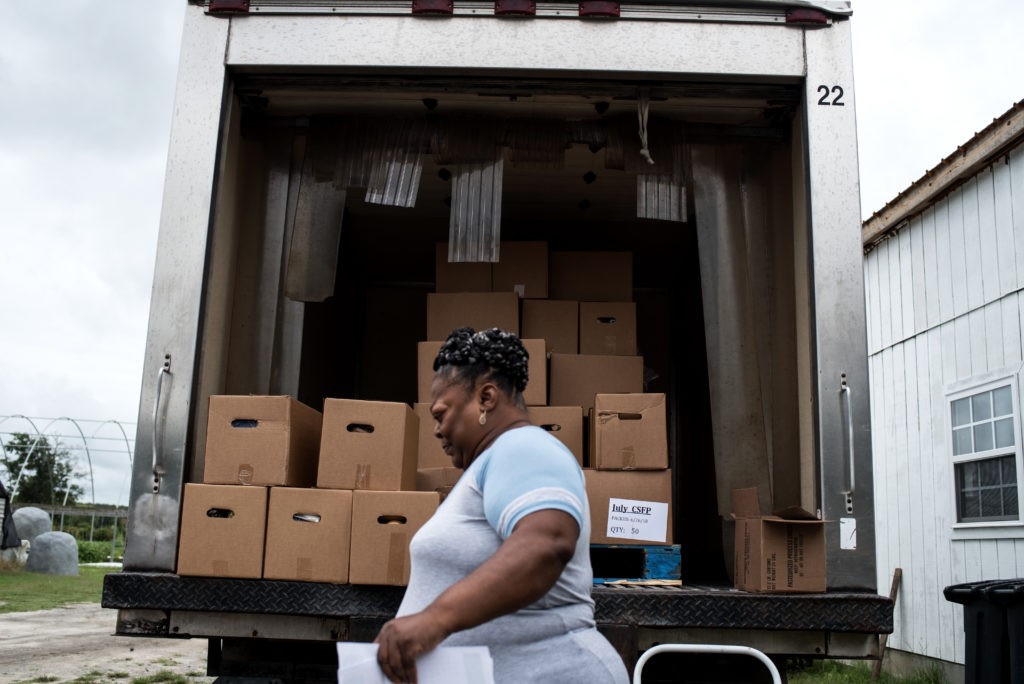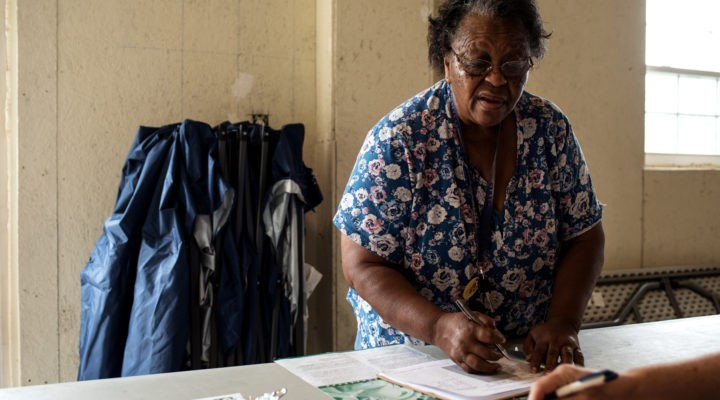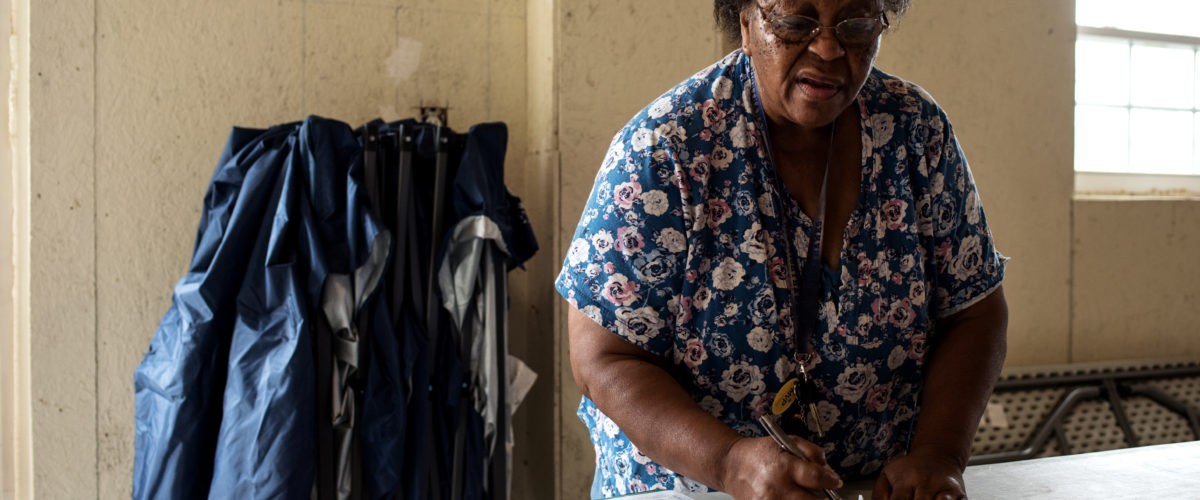Being black in the United States is decidedly bad for your health. To begin with, African Americans steadily experience higher rates of diabetes, hypertension and heart disease than other groups. In turn, they sustain the highest obesity rates in nearly every state. Furthermore, African American adults are much less likely to survive prostate, breast and lung cancer compared with white adults. Black children even have a 500 percent higher death rate from asthma compared to white children.
Ultimately, if black Americans enjoyed the same mortality rate as white Americans, nearly 100,000 fewer black people would die each year. That’s because poor health, poverty and systemic racism are viciously intertwined in the United States, says Paul Cunningham, former dean of East Carolina University’s Brody School of Medicine and one of the few black medical deans in the United States.
“It’s all about poverty, and poverty tends to track with race in this country, especially in a rural environment,” Cunningham explains. “But, white people and black people enjoy the same health outcomes based on their zip code. And your zip code has to do with where you can afford to live, your historic and traditional domicile. That tracks with race and often leads to quite miserable health outcomes among African Americans.”
Ten years ago Cunningham became an unlikely ally in Conetoe, North Carolina’s fight against an epidemic of early deaths. Conetoe, a historically black community 20 miles northwest of Greenville, was enduring extremely high rates of diabetes, hypertension and heart disease. Richard Joyner, Conetoe Chapel Missionary Church’s new pastor at the time, spent his first year hosting funerals for more than 30 members of his congregation, most of whom were under the age of 60 and even 50. Ironically, Conetoe, a once-thriving farming community, had lost access to whole foods and proper nutrition. Chronic disease, in turn, thrived.
Joyner, however, was determined to help his community reclaim its health and subsequently founded the Conetoe Family Life Center. In 2007, the CFLC began acquiring local land, growing fresh produce and giving Conetoe’s residents free access to healthy food. In addition, the center hosted cooking classes, deployed lay health coaches to local households and created a summer camp for children and youth to learn about farming and nutrition.
That’s when Joyner enlisted the help of Cunningham, a surgeon at the same hospital Joyner served as a chaplain. Cunningham specialized in chronic and terminal illness as well as bariatric surgery, and confirmed Joyner’s hunch: 90 percent of Conetoe’s chronic diseases could be managed through proper nutrition. When it comes to health care, Cunningham says, you simply cannot overstate the importance of nutrition throughout a lifetime.
“It’s an absolutely critical component,” he explains. “You cannot lead a long and healthy life without eating appropriately. It’s just not possible without good nutrition and exercise. And I’m not talking about organic food or a lot of the ‘frou-frou’ stuff out there right now. That may have relevance in downtown Manhattan but not in Eastern North Carolina. I’m talking about the basic necessity to eat a wholesome diet on a regular basis and have enough of it, instead of starches and sugar.”

Richard Joyner discovered that 90% of his community’s chronic diseases – such as diabetes, high blood pressure and obesity – could be managed through proper nutrition. Photo/Caitlin Penna
With Cunningham’s help, Joyner and the people of Conetoe began to turn the tide against diabetes, high blood pressure and obesity. With free access to whole, local foods, residents were cooking healthier meals and experiencing compelling results. One resident, Ms. Minnie Pearl, came off of 21 medications because of her altered diet.
Nevertheless, too many of America’s black and rural communities still lack access to grocery stores, health care and the income to afford either, Cunningham says. Plus, not every community can grow its own healthy food like Conetoe.
“Good health is a time-consuming enterprise, and you have to make a decision as to whether you’re going to work, sleep at night or grow vegetables in your backyard,” he says.
“Communities like Conetoe aren’t given a real choice. The day only has 24 hours. If I’m working 10 or more hours a day and the doctor says I need to sleep 8 hours at night, I don’t have any time left. And my car, if I have one, is not a world-beater and the first supermarket is 15 miles away. And I’ll have to put gas in the car if I want to buy broccoli. Guess what? It’s not going to happen.”
The bottom line, Cunningham explains, is that black Americans endure significantly worse health outcomes because they or their community lack the economic power to purchase good health. “Health is literally something you buy and it’s bought with time and money,” he says.
The availability of grocery stores, hospitals, health coverage or your own free time boils down to the economic capacity of your zip code. That’s why privileged urban and suburban communities, largely inhabited by white professionals, can usually anticipate long, healthy lives, Cunningham adds, while economically crippled communities, largely inhabited by people of color, face significantly worse odds.
Ultimately, Joyner’s model, however exceptional or difficult, is a benchmark for restoring health to isolated, black communities, Cunningham says. As nutrition increases, so will the number of long, sustainable black lives in the United States. The key, he emphasizes, is not only to convince people of the model’s positive effects but to inspire people to believe that the empowerment Conetoe has experienced can be theirs too. That’s why he’s convinced Conetoe’s story is so important to the future of black health.
“The fact of the matter is, we need more of this across the country,” he says. “Richard has a strategy that worked in an impoverished environment. He developed an effective way of binding his community together and causing social and medical good to happen. It’s a model worth learning about and repeating. But it’s going to require people as engaged as Richard to promote this approach.”
“We must understand precisely what Richard has done and then leverage that in every community,” he continues. “It will require us to communicate and educate across regions. It won’t happen overnight. It can, however, spread in an organic manner across the region and perhaps the United States.
“If we as a country focused our attention on just these things, we would not only enjoy prosperity, but we would have happier and healthier people across the nation.”

The Conetoe Family Life Center facilitates the distribution of government-sponsored Community Supported Agriculture boxes in Edgecombe County, supplemented with their own locally grown produce. Photo/Caitlin Penna
Read more in the Conetoe series
Justice through farming: The soil will give to any person
Being black in the United States is decidedly bad for your health
Video: Richard Joyner discusses Conetoe’s pathway to health
Video: Richard Joyner explains lay health coaches
Related news:
Youth-led farming, bee-keeping ministry inspires CBF field personnel
Hurricane season has ended (yay) but the poor aren’t cheering
Moving beyond hope to confidence in fight against hunger
How a North Carolina minister sowed seeds of hope in a food desert (via Modern Farmer)
Related commentary:
5 reasons why reparations talk makes white people crazy | Alan Bean
I’m awaiting a kidney transplant. I care about our nation’s health care crisis. But churches should too | Kathy Manis Findley
Racial justice: apology without restitution, lamentation without transformation | Susan M. Shaw
A Lenten reflection about repentance, reparations and resistance | Wendell Griffen
As told through the Conetoe series, the mission of the Conetoe Family Life Center, led by Richard Joyner, is to get whole, healthy foods onto the tables of Conetoe’s families. “Good health is a time-consuming enterprise, and you have to make a decision as to whether you are going to work, sleep at night or grow vegetables in your backyard.”
This series in the “Faith & Justice” project is part of the BNG Storytelling Journalism initiative. In “Faith & Justice,” we tell the stories of people and organizations that are helping to transform their communities, bending the “arc of the moral universe” toward justice.
_____________
Seed money to launch our Storytelling Journalism initiative and our initial series of projects has been provided through generous grants from the Christ Is Our Salvation Foundation and the Eula Mae and John Baugh Foundation. For information about underwriting opportunities for Storytelling Projects, contact David Wilkinson, BNG’s executive director and publisher, at [email protected] or 336.865.2688.


